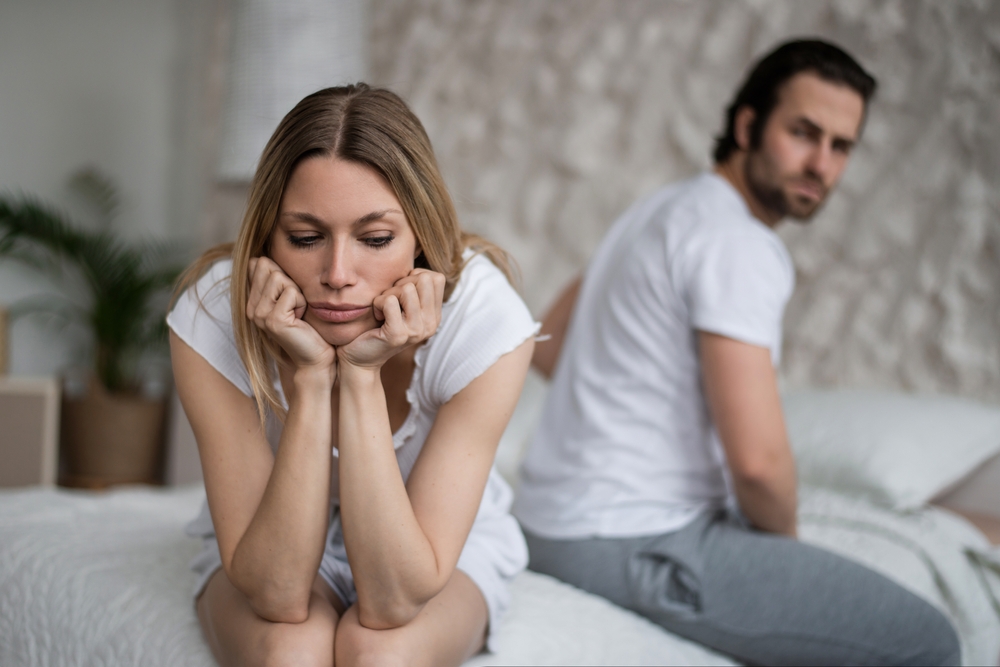Libido is important for both personal satisfaction and the health of your relationship. It affects intimacy, connection, and overall happiness with your partner. Understanding how various factors influence libido can help you maintain a balanced and fulfilling relationship.
Hormones impact libido due to their effect on aspects of health such as stress levels, sleep, and energy. Fluctuations in hormone levels can lead to changes in sexual desire. At Balle Bliss Luxury Medical Spa in Cypress, TX, we will look closely at how hormones influence your libido and overall well-being. We can also offer treatments such as bioidentical hormone replacement therapy from Biote® to help.
What Is Libido?
Libido refers to a person’s sexual drive or desire for sexual activity. It varies from person to person and can be influenced by physical health, mental state, and relational dynamics. While some fluctuations in libido are normal, persistent changes may indicate underlying health issues.
Factors Affecting Libido
- Stress and Anxiety: Stress and anxiety are common contributors to low libido. When you are stressed or anxious, your body produces higher levels of cortisol, a hormone that can inhibit sexual desire. Chronic stress can also lead to mental fatigue, making it difficult to find interest in sexual activities.
- Relationship Dynamics: The quality of your relationships is one facet of sexual desire. Issues such as unresolved conflicts, lack of communication, and emotional distance can negatively impact libido. Building a strong emotional connection and openly discussing sexual needs with your partner can enhance intimacy and increase sexual desire.
- Mental Health Conditions: Mental health conditions like depression and anxiety can lower libido. These conditions can affect your energy levels and overall interest in activities you once enjoyed, including sex.
- Age: As you age, natural changes in hormone levels can affect desire. For women, menopause brings a decrease in estrogen levels, which can lead to low libido. Men may experience a gradual decline in testosterone levels, affecting their sexual drive.
- Physical Health: Conditions such as obesity, diabetes, and cardiovascular disease can lead to low libido. Regular exercise, a balanced diet, and maintaining a healthy weight may promote a stronger sexual desire.
- Medications: Certain medications can affect libido as a side effect. Antidepressants, blood pressure medications, and hormonal treatments can all contribute to changes in sexual desire. If you suspect your medication is affecting your libido, consult with your healthcare provider.
- Lifestyle Factors: Lifestyle factors such as alcohol consumption, smoking, and poor sleep can negatively impact libido. Excessive alcohol and smoking can reduce sexual desire and performance.
Hormones and Libido
Hormones are chemical messengers that affect various aspects of health, including libido. They influence stress levels, energy, mental health, and physical health. As we age, natural hormonal changes occur, which can alter libido, and other circumstances can cause shifts or imbalances in hormones.
How Hormones Affect Male Libido
When testosterone levels drop, men can experience low libido. Everyday factors like stress, an unhealthy diet, and lack of exercise can further lower testosterone levels. To boost libido, focus on overall health and well-being.
Simple steps like managing stress, eating a nutritious diet, and staying active can all help. You can also consult with a healthcare provider about hormone replacement therapy if these efforts are not making a difference.
How Hormones Affect Female Libido
For women, hormones like estrogen and progesterone help regulate sexual desire. Changes in these hormone levels can lead to low libido and make sexual activity less appealing. This can occur during times of natural hormone changes such as during pregnancy, after pregnancy, or during menopause.
Women often experience changes in libido as hormones shift throughout the menstrual cycle, with a higher sex drive during times of higher estrogen levels such as during ovulation. Stress, mental health, and physical health are closely tied to hormonal shifts. For those seeking treatment for a consistently low libido due to hormones, solutions may include lifestyle interventions and medical interventions.
Biote Hormone Replacement Therapy
What Is BHRT?
Bioidentical hormone replacement therapy (BHRT) uses hormones that are chemically identical to those produced by your body. These hormones are derived from natural sources such as yams and are used to address hormonal imbalances. BHRT restores hormone levels to optimal levels to alleviate symptoms associated with hormonal deficiencies. This therapy is customized to meet individual needs, providing a personalized approach to hormone health.
Benefits of Biote for Libido
Biote is a type of BHRT that addresses low libido and other symptoms of hormone imbalance through hormone pellets. Hormone pellet therapy is a method used in BHRT where tiny pellets are inserted under the skin where they release hormones consistently over time. This steady release helps maintain stable hormone levels and reduces fluctuations that can impact sexual desire. Biote pellets are customized to offer the precise amounts of specific hormones that your body needs.
Is Biote Right for You?
Hormone pellets used in Biote therapy offer a convenient and effective solution for those experiencing hormonal imbalances. If you have symptoms such as fatigue, mood swings, hot flashes, or sexual dysfunction, BHRT might be a suitable option. We can assess your hormone levels and overall health to create a personalized treatment plan that addresses your specific concerns.
Restore Your Libido With Bioidentical Hormone Replacement Therapy in Cypress
BHRT can treat hormonal imbalances, potentially improving libido and overall well-being. By considering treatments like Biote at Balle Bliss Luxury Medical Spa, you can take a proactive approach to managing your hormone health. If you’re interested in learning more, please contact us or call (281) 758-2777 and schedule a consultation in Cypress, TX.

